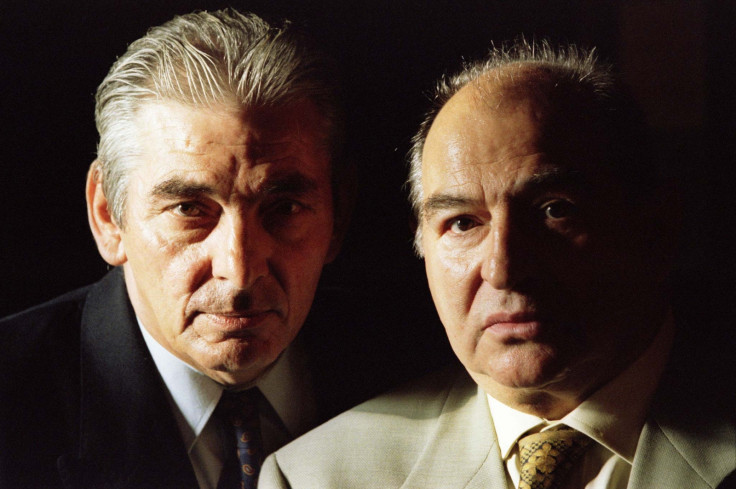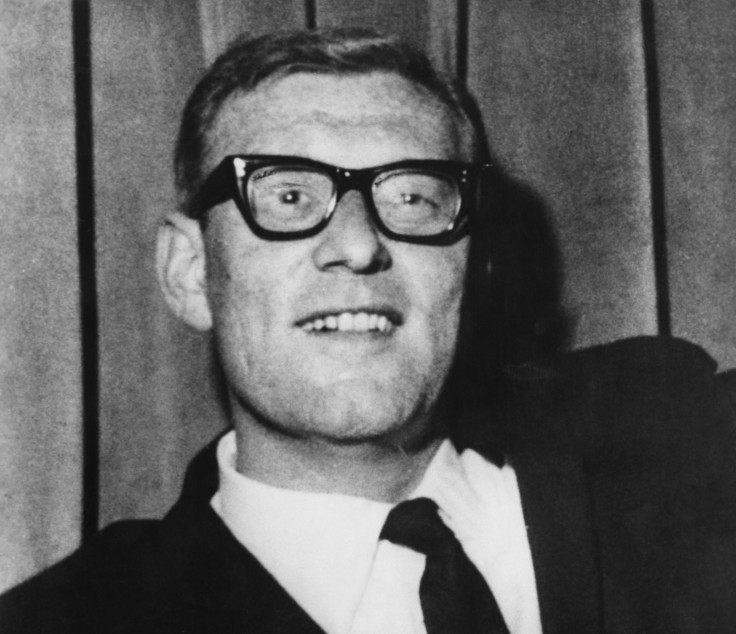Frankie Fraser Dead: The Last British Godfather 'Brown Bread Fred' Freddie Foreman

Britain's notorious underworld is dwindling. This week, the criminal and former associate of the Kray Twins, "Mad" Frankie Fraser died at the age of 90 in a London hospital, leaving behind a legacy of gangland violence.
Few of the mobsters that rose to notoriety in the 1960s are still alive, with the exception of Freddie Foreman. And to the underworld of Britain, "Brown Bread Fred" Foreman is the Godfather - given his nickname for the number of bodies attributed to him. Later in life, Foreman admitted to the killing of British criminal Thomas "Ginger" Marks in January 1965.
Allegedly a hitman and associate of the Kray Twins, Ronnie and Reginald Kray, Foreman was the punisher to those who broke the underworld's strict code of conduct.
Frank 'The Mad Axeman' Mitchell
Born on Sheepcote Lane in Battersea in 1932, Foreman was involved in violence from a young age. He was known for his involvement with audacious criminal plans, one of which was the murder of Frank 'The Mad Axeman' Mitchell – a British criminal previously befriended by Ronnie Kray when they served a sentence together at Wandsworth prison.
When Mitchell was sent to Dartmoor prison in 1962 for robbery with violence, Kray was keen to break him out – to enhance the twins' standing in the underworld. The daring escape, carried out in 1966, led to a political storm over the negligent security around a man described by the media as "Britain's most violent convict".
Although earning both the Krays' infamy, Mitchell soon became a problem for the twins. He was difficult to control, with a short temper and physical strength. Mitchell became agitated that he could not visit his parents. Eventually, the Krays made the decision to kill him. On 24 December 1966, Mitchell was led into the back of a van, where Foreman and Alfie Gerrard waited with revolvers.
The body of Mitchell was never recovered, but Foreman later revealed that his body was bound with chicken wire, weighed down and dumped in the English Channel. Foreman later confessed to his involvement with Mitchell's murder, which he claimed was in revenge for the shooting of his brother.

Jack "the Hat" McVitie
Later in life, Foreman confessed to being involved in the disposal of the body of McVitie, a London-born criminal of the 1950s and 1960s. A drug trafficker and well-known associate of the Krays, McVitie is now posthumously famous for triggering the downfall and imprisonment of the twins.
In 1967, Ronnie Kray paid McVitie £1,500 in advance to kill ex-friend and business partner Leslie Payne – amid concerns he was about to tell the police about his criminal activities.
McVitie and a friend, Billy Exley, set off to shoot Payne, but were unsuccessful. At the time, McVitie was heavily dependent on drugs. Exley, less experienced, lost his nerve. In his words, McVitie had pulled out a handgun "the size of a bleedin' cannon".
The Krays sought revenge for the McVitie's failure in October that year. When McVitie was invited to a party in Stoke Newington, with several other underworld associates, the Krays arrived first – with hopes of an ambush. The murder went less smoothly than planned. When Reggie's gun jammed, his more violent twin stabbed McVitie in the face, chest and stomach, in a brief but bloody struggle.
"Security Express" robbery
Foreman's part in Britain's largest cash robbery at the time made headlines around the world. During the raid a security guard was doused with petrol and threatened with being burnt alive unless he produced the keys to the safe. For his role, Foreman received nine years in prison.
On Easter Monday 1983, a gang broke into the Security Express depot in Shoreditch, east London, and escaped with around £6m.
The robbery was masterminded by John Knight, the brother of the former husband of actress Barbara Windsor, who was later jailed. Both Knight and Foreman escaped to Spain after the robbery before they were imprisoned, as the collapse of the 100-year-old extradition treaty in 1978 turned the country into a bolt hole for British criminals.
© Copyright IBTimes 2025. All rights reserved.




















